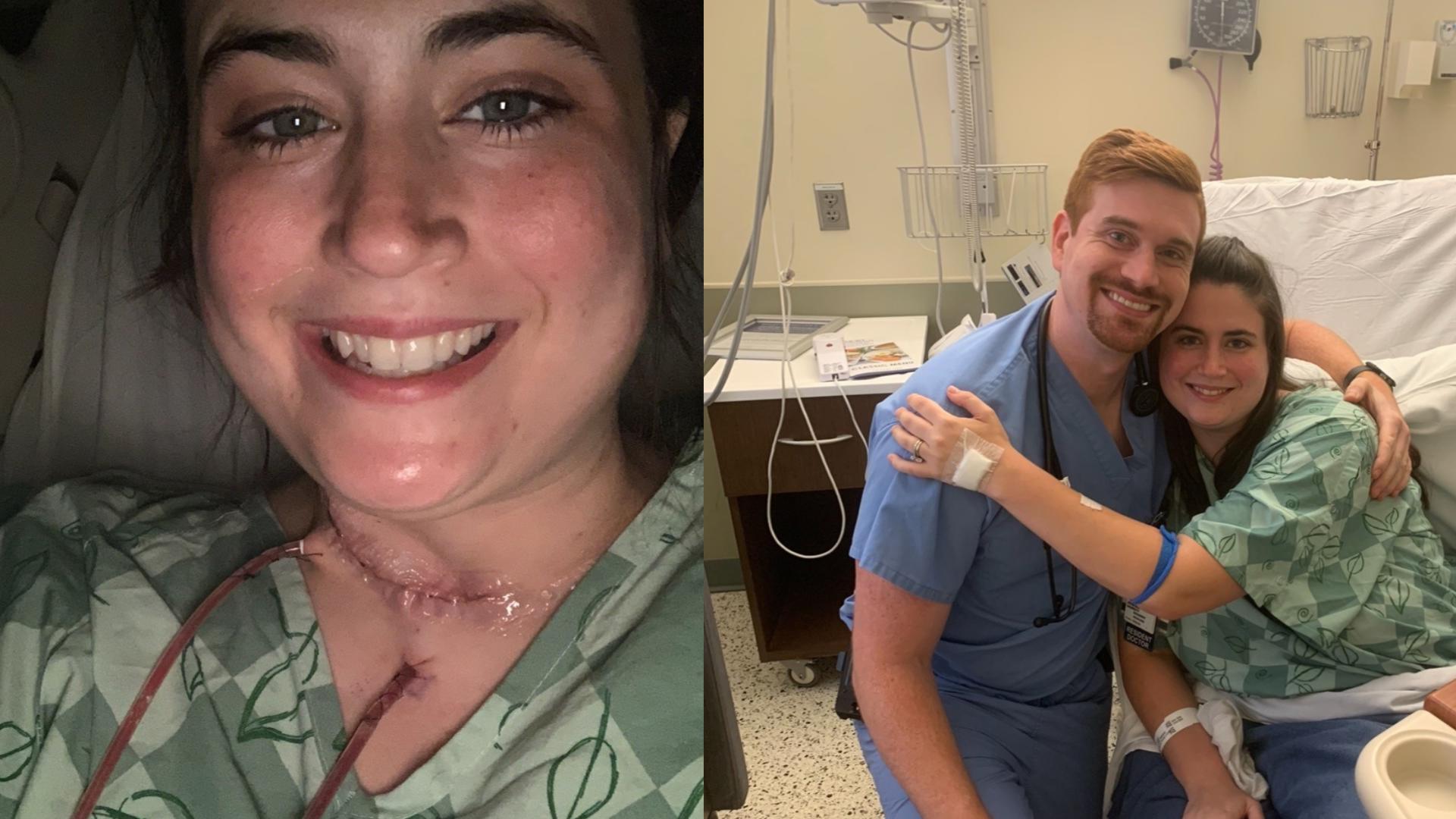HALL COUNTY, Ga. — A mom of three, Victoria Hurtado, was diagnosed with thyroid cancer in 2022 when she was just 30 years old. She went to college in Dahlonega and lived for several years in Hall County.
“I felt denial like this can't be real," she said. "I'm 30; there's no way I have thyroid cancer. Then the acceptance and the grief, then the anger and sadness.”
Even after major surgery, Hurtado's cancer spread. Her doctors were unable to provide all the answers she so desperately wanted.
"I asked my doctor, what causes this?" she recalled. "He said, 'We really have no idea.'”
11Alive News Investigates spoke to dozens of residents in Northeast Georgia. Women, men, and even children, are all facing the same diagnosis and questions.

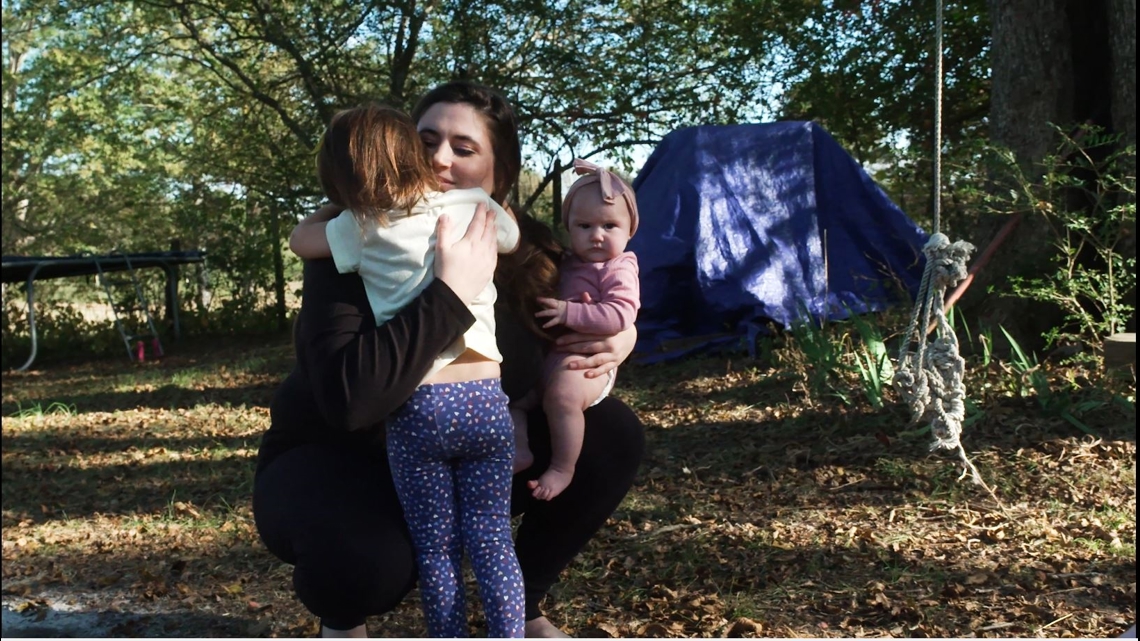
“There's so many cases popping up here," Hurtado said. "Whatever it is that is causing this is a very strong factor."
According to CDC data, high thyroid cancer rates began to emerge in Northeast Georgia around 2006. Incidence rates have been unusually high in the area ever since, especially in Union, Lumpkin, Hall, White, Habersham, and Rabun counties.
The number of thyroid cancer cases in those counties has been about double or more the national average over the past decade.

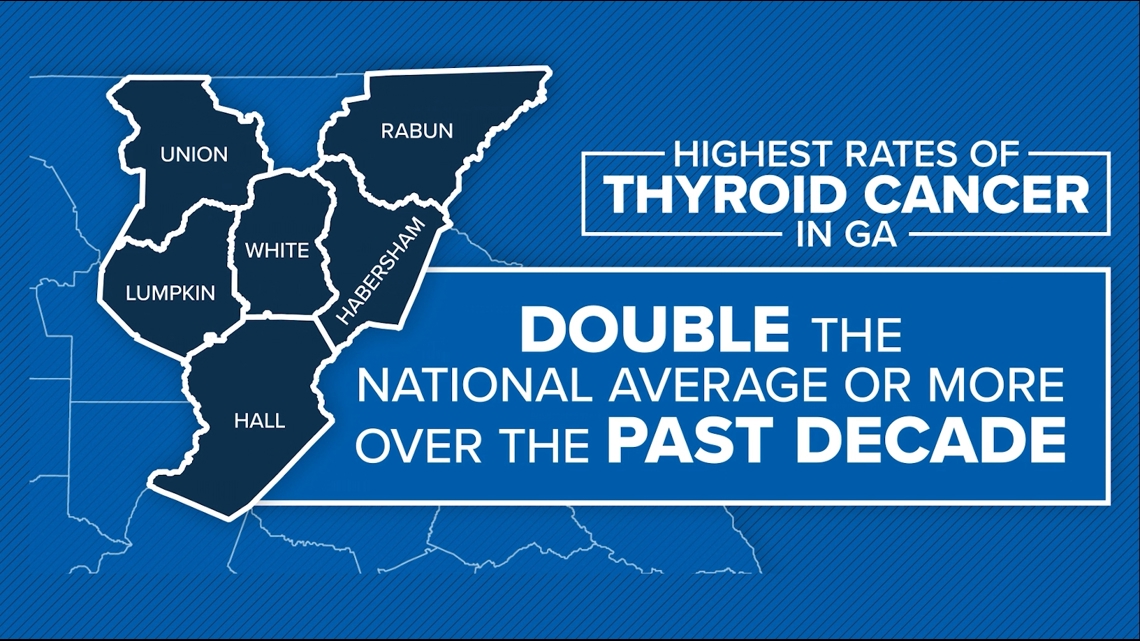
What doctors had to say about Northeast Georgia thyroid cancer rates
When 11Alive News Investigates brought that data to Northeast Georgia Medical Center, it responded quickly.
Endocrine surgeon Dr. Nikita Machado said the data validated recent concerns she and her colleagues in the area have shared.
“We're noticing that there's a lot of these patients with thyroid cancer," she said. "Our incidence of young patients with thyroid cancer is surprisingly higher than it should be. It's definitely above the national average."
Machado said the often overlooked symptoms include a lump in the neck, voice changes, trouble swallowing, fatigue, and sudden weight fluctuation.
"The symptoms are a little bit vague, which means that you don't always find it unless it's a sizable mass, voice changes and difficulty swallowing," she said. "But by that point, the cancers can get fairly large."

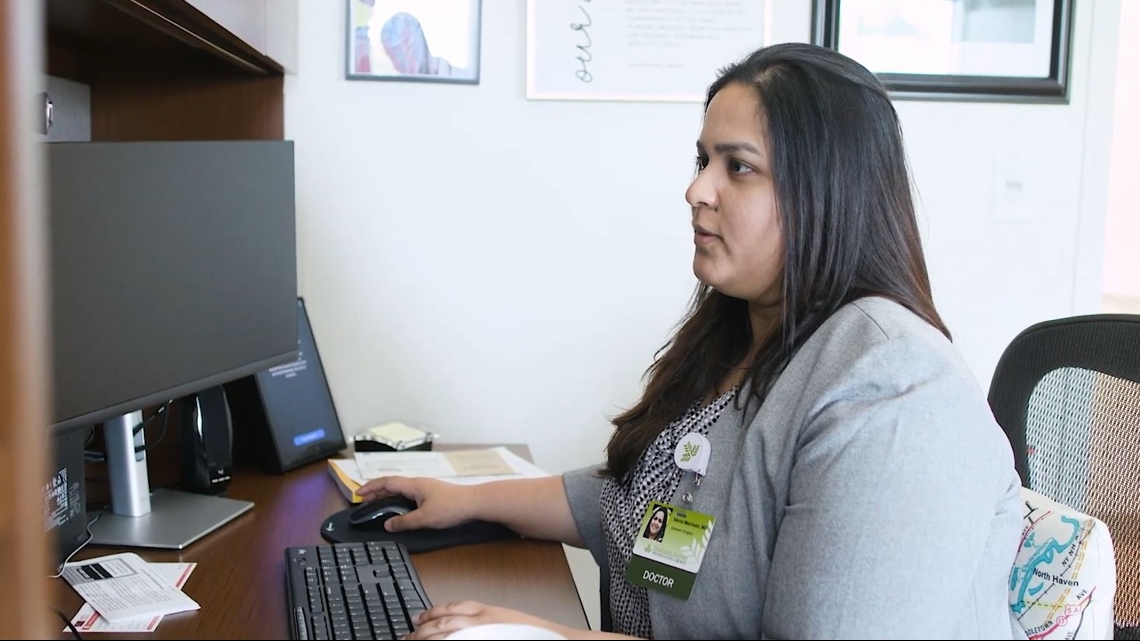
Machado said there's not yet enough research to definitively prove what causes thyroid cancer.
"It's oftentimes I think an interplay of different things," she said. "Environmental factors can sometimes play a part; ionizing radiation is one of the big ones. There is talk about certain chemical substances, potentially, you know, exposure to some hard metals like arsenic and things like that, that could potentially play a role."
Researchers now hope to learn whether any of those factors might be contributing to the unusually high number of cases in Northeast Georgia.
A public health expert's take
The same data was brought to Dr. Neal Lin, an expert in public health and epidemiology and professor at the University of North Georgia (UNG). He immediately noted it was cause for concern.
“Looking at the incidence rates of thyroid cancer in the Northeast counties of Georgia, we're seeing that they are not just high, but certainly exceptionally high," Lin said. "This is something that epidemiologists will look at and say, the numbers are telling me something."
The big question, he said, is what might be causing it.

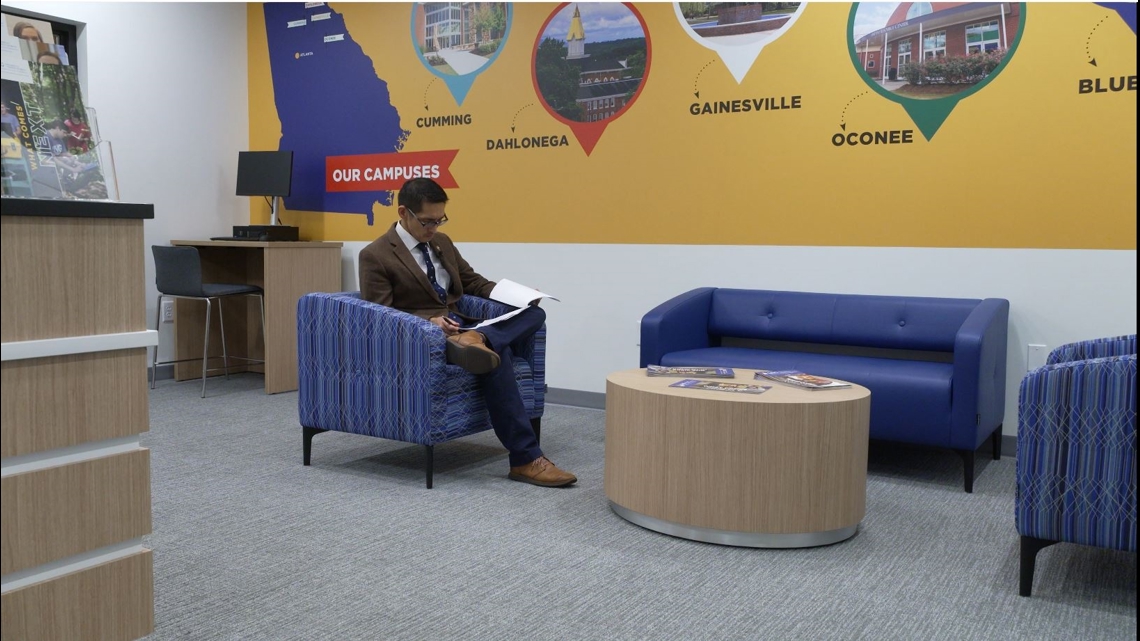
"It may be something that is environmental," Lin explained. "It may be something related to the infrastructure here.”
Lin said he's tapped a team of student researchers at UNG to start investigating potential causes. He acknowledged that without widespread support from the state and other contributors, it may be a long road.
"They need to put in the time investigating to figure this out," Lin said. "The hurdle is to get the funding."
Both Lin and Machado said finding answers will largely depend on public health officials getting involved.
"I think it's important to parse out, is there something here that's preventable?" Machado said. "What we need is a partner in the community, and that usually boils down to the Department of Public Health and then epidemiologists.”
Georgia Department of Public Health: It's not a 'cancer cluster'
11Alive News Investigates provided the findings to the Georgia Department of Public Health (DPH), which reviewed the data.
A spokesperson confirmed a nurse navigator from Northeast Georgia brought the high rate of thyroid cancer in one of the six counties identified to DPH’s attention last year. The spokesperson did not clarify which county that was.
They noted that because the geographical region identified was so large, it would not be considered a cancer "cluster."
The spokesperson also stated that DPH is not allocating any special resources to investigate but will continue "to monitor overall cancer rates as part of the cancer registry."

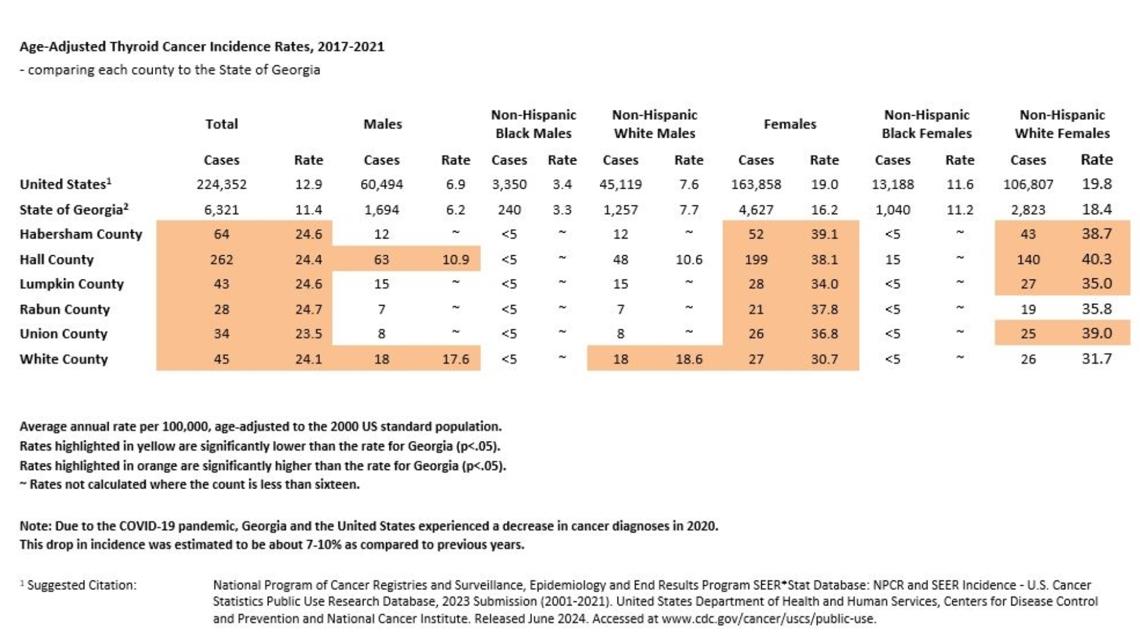
Raising awareness about this phenomenon
Dr. Machado said she hopes spreading the word about thyroid cancer risks in Northeast Georgia will help educate residents and encourage them to monitor their health for any symptoms.
“You're doing really important work here," she said. "I think raising awareness about thyroid cancer and sort of what to expect and how to look for it is going to help us to catch these earlier."
Although there is no screening test for thyroid cancer, an awareness of the common symptoms may help lead to early intervention.
"It's your physicians making sure that they talk about it at your yearly visit," Machado said. "It's the media making people aware that this exists in our community and exists at a higher rate than it probably should. And then it's the Department of Public Health setting up initiatives and talking with epidemiologists, trying to figure out what the reasons are for this."
Hurtado, who is preparing to undergo radiation therapy to target her cancer, said she hopes the state makes resources available to investigate.
"It's so important to look into this so that people can continue to live in this beautiful area and feel safe about it," she said.
If you have been diagnosed with thyroid cancer and live in Union, Lumpkin, Hall, White, Habersham, or Rabun counties and are willing to share more with researchers and 11Alive News Investigates, please email Savannah Levins at slevins@11alive.com.

